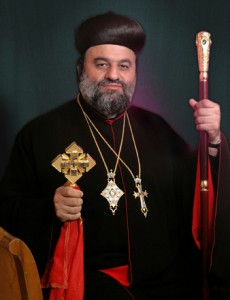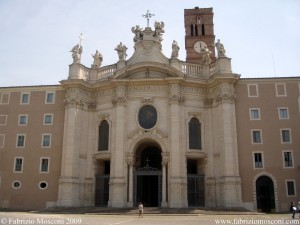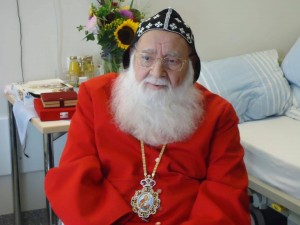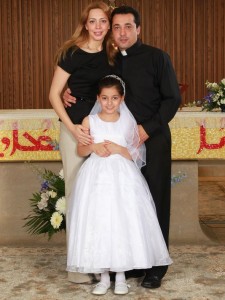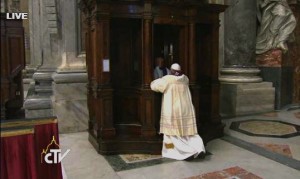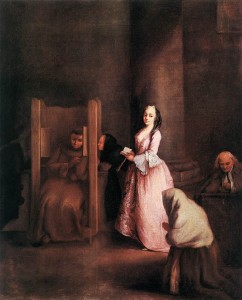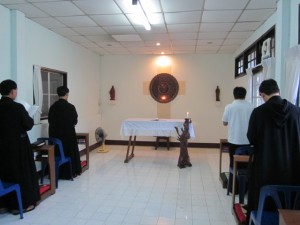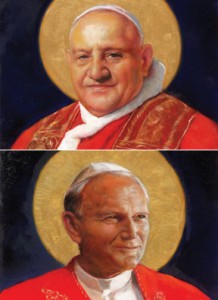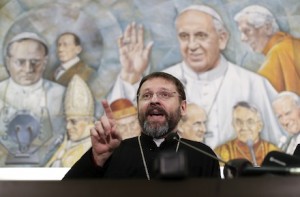There are those who are very admirable ministers in the priesthood of Jesus Christ. Men who attend to a life in the Spirit. I would say that some of the newly ordained ministers are beautiful people: their heart, mind and soul clearly have the heart of the Good Shepherd. Our role, as Pope Francis has indicated below, is to call the ministers of God to truly live their vocation to fullest extent, to be united in prayer and friendship while together seeking the face of Christ.
Conversely, you and I have met deacons, priests and bishops who, after the meeting would say, “that man should never have been ordained.” Some of the newly ordained are “know it alls” and more interested in keeping the faithful accountable to some abstract authority. Then there are priests who protect the truth so rigidly that they kill the heart and dull the mind. A priest who uses his pastoral authority badly for the “sake of the Church” ought to enter into serious discernment, like that of the Prophet Samuel, before acting. How many have lost the propriety of the vocation. Scandalous behavior of the ordained is rather troubling for words.
I have to say, too many of the ordained, as a whole, are a mixed bag. We still have men ordained who don’t take their vows seriously, rarely pick up a good book of history, poetry, art, or theology, are more concerned with their day off than the zeal for the gospel, and the list goes on and on.
Sad to say, when I read Pope Francis’ catechesis today, as when I read Pope Benedict’s homilies and various addresses on the priesthood, I walked away distressed at the current state of the ministerial priesthood.
We are all sinners. We all need forgiveness. We all need to love, be loved, and to live in mercy. This Lent I am more conscious of this fact for my own conversion which is why I am hoping that the priesthood in Connecticut, indeed, the USA, will work daily on their conversion: grace only lives in Truth.
One of the many interesting points the Holy Father speaks of today is the buying and selling of the priesthood. Now, it may not be exchange of cash, but the priesthood is too often sold on the level of one’s integrity, one’s coherence, one’s sense of self, of one’s “I am” before Christ and the Church.
Are we all concerned for the sanctification of the priesthood? How passionately do you love the ordained of the Catholic Church? Are you a spiritual mother, a spiritual father for your deacons, priests and bishops? Do you intercede for them? Are you attentive to their humanity? This is our work, this is our prayer, our sacrifice, our confidence before the Eucharistic Lord and His All-Holy Mother.
Pope Francis teaches:
We have already pointed out that the three Sacraments of Baptism, Confirmation and the Eucharist constitute together the mystery of “Christian initiation,” a unique great event of grace that regenerates us in Christ. This is the fundamental vocation that unites all in the Church as disciples of the Lord Jesus. Then there are two Sacraments which correspond to two specific vocations: Holy Orders and Matrimony. They constitute two great ways through which a Christian can make of his life a gift of love, on the example and in the name of Christ, and thus cooperate in the building of the Church.
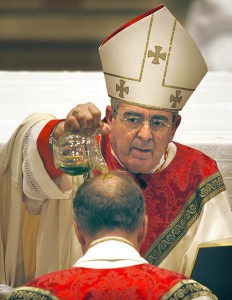 Holy Orders, articulated in the three ranks of episcopate, presbyterate and diaconate, is the Sacrament which enables the exercise of the ministry, entrusted by the Lord Jesus to the Apostles, to feed his flock, in the power of his Spirit and according to his heart. To feed Jesus’ flock not with the power of human strength or with one’s own strength, but with that of the Spirit and according to his heart, that heart of Jesus which is a heart of love. The priest, the Bishop, the deacon must feed the Lord’s flock with love. If he does not do it with love, it is useless. And in this sense, the ministers that are chosen and consecrated for this service prolong Jesus’ presence in time, if they do so with the power of the Holy Spirit in the name of God and with love.
Holy Orders, articulated in the three ranks of episcopate, presbyterate and diaconate, is the Sacrament which enables the exercise of the ministry, entrusted by the Lord Jesus to the Apostles, to feed his flock, in the power of his Spirit and according to his heart. To feed Jesus’ flock not with the power of human strength or with one’s own strength, but with that of the Spirit and according to his heart, that heart of Jesus which is a heart of love. The priest, the Bishop, the deacon must feed the Lord’s flock with love. If he does not do it with love, it is useless. And in this sense, the ministers that are chosen and consecrated for this service prolong Jesus’ presence in time, if they do so with the power of the Holy Spirit in the name of God and with love.
A first aspect. Those who are ordained are placed at the head of the community. They are “at the head” yes, but for Jesus it means to put one’s authority at the service of, as He himself showed and taught the disciples with these words: “You know that the rulers of the Gentiles lord it over them, and their great men exercise authority over them. It shall not be so among you; but whoever would be great among you must be your servant, and whoever would be first among you must be your slave; even as the Son of man came not to be served but to serve, and to give his life as a ransom for many” (Matthew 20:25-28; Mark 10:42-45). A Bishop who is not at the service of the community does no good’, a priest who is not at the service of the community does no good, he errs.
Another characteristic that always derives from this sacramental union with Christ is “passionate love for the Church. We think of that passage in the Letter to the Ephesians in which Saint Paul says that Christ “loved the Church and gave himself up for her, that he might sanctify her, having cleansed her by the washing of water with the word, that he might present the Church to himself in splendor, without spot or wrinkle or any such thing” (5:25-27). In virtue of Holy Orders the minister dedicates his whole self to his community and loves it with all his heart: it is his family. The Bishop and the priest love the Church in their community, they love her intensely. How? As Christ loves the Church. Saint Paul says the same about matrimony: the husband loves his wife as Christ loves the Church. It is a great mystery of love: this priestly ministry and that of matrimony, two Sacraments that are the way by which persons usually go to the Lord.
A last aspect. The Apostle Paul recommends to his disciple Timothy not to neglect, but rather to revive always the gift that is in him. The gift that was given to him for the imposition of hands (cf. 1 Timothy 4:14; 2 Timothy 1:6). When the ministry is not nourished — the ministry of the Bishop, the ministry of the priest –, with prayer, with listening to the Word of God, and with the daily celebration of the Eucharist and also with the frequentation of the Sacrament of Penance, one ends inevitably by losing sight of the authentic meaning of one’s service and the joy that stems from profound communion with Jesus.
The Bishop who does not pray, the Bishop who does not listen to the Word of God, who does not celebrate Mass every day, who does not go regularly to Confession, and the same for a priest who does not do these things, in the long run lose their union with Jesus and become a mediocrity which does no good to the Church. Therefore, we must help Bishops and priests to pray; to listen to the Word of God, which is the daily meal; to celebrate the Eucharist every day and to go to Confession regularly. This is so important because it concerns in fact the sanctification of the Bishops and priests.
I would like to end with something that comes to mind: but what must one do to become a priest? Where is access to the priesthood sold? No. It is not sold. This is an initiative that the Lord takes. The Lord calls. He calls each one that He wishes to become a priest. Perhaps there are here some young men who have felt this call in their heart, the wish to become a priest, the wish to serve others in the things that come from God, the wish to spend their whole life in service to catechize, baptize, forgive, celebrate the Eucharist, take care of the sick … and spend their whole life in this way. If one of you has felt this thing in his heart it is Jesus who has put it there. Take care of this invitation and pray that it will grow and bear fruit in the whole Church.
A synopsis:
In our catechesis on the sacraments, we now turn to the sacrament of Holy Orders. Building on the vocation received in the sacraments of Christian initiation – Baptism, Confirmation and the Eucharist – the sacraments of Holy Orders and Matrimony correspond to two specific vocations and are two ways of following Christ and building up his Church. Holy Orders, in its three grades of bishop, priest and deacon, is the sacrament of pastoral ministry. Jesus entrusted his Apostles with the care of his flock and in every age the ordained make present in the Christian community the one Shepherd who is Christ. Following the Lord’s own example, they lead the community as its servants. Theirs must be lives of passionate love for the Church for whose purification and holiness the Lord gave himself completely, and they must constantly renew the grace and joy of their ordination through prayer, penance, and daily celebration of the Eucharist. Today, let us pray for all the Church’s ministers, especially those most in need of our prayers, and ask the Lord always to grant his Church holy, generous and merciful pastors after his own heart.
